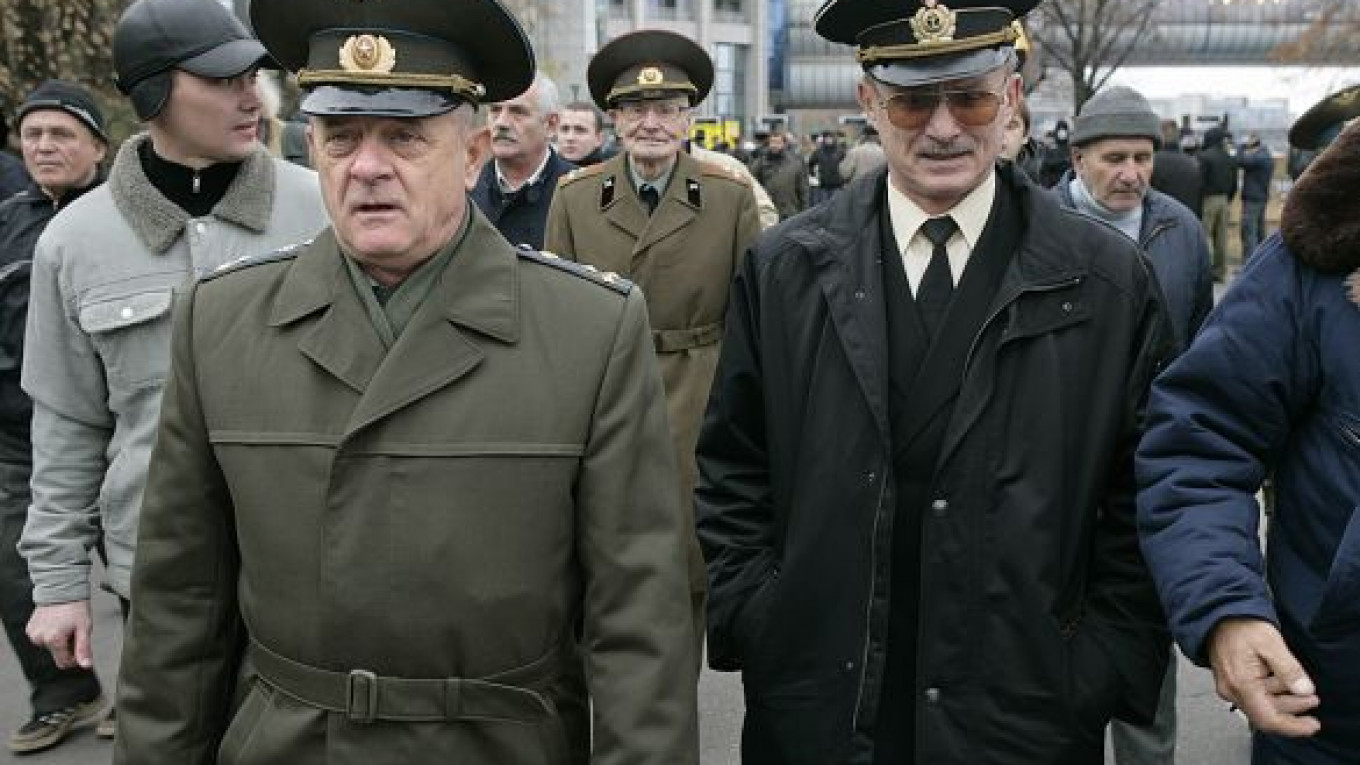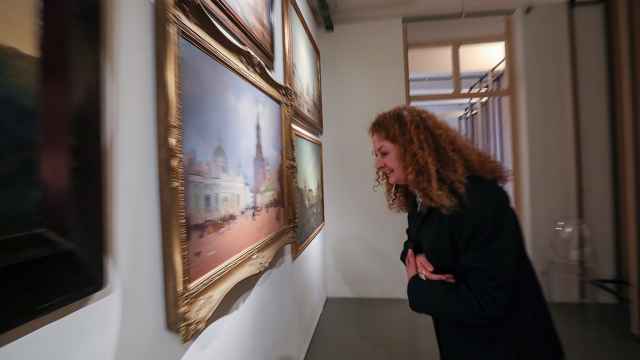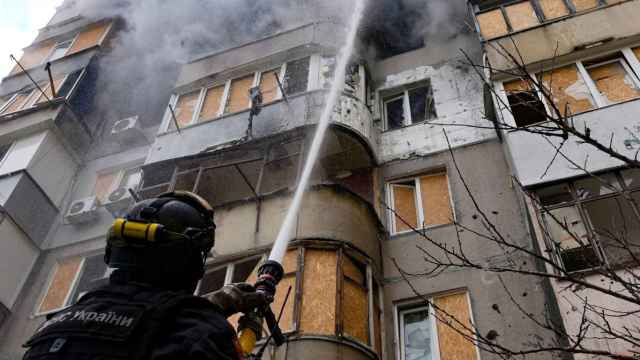The Moscow City Court on Monday approved the arrest of retired colonel and ultranationalist icon Vladimir Kvachkov, 62, held on suspicion of preparing an armed coup with crossbows.
Kvachkov's lawyer Andrei Pershin said by telephone that he believed that the arrest of his client was revenge from Rusnano chief Anatoly Chubais, whom Kvachkov was twice acquitted of trying to kill.
“Considering the fact that he was already in pretrial detention, we expected this to happen,” Pershin said about Monday's ruling to keep Kvachkov in pretrial detention for two months.
He said he planned to appeal to the European Court of Human Rights.
Chubais was not available for comment Monday, but he said after Kvachkov's second acquittal in September that he believed the defendant was behind the 2005 attack on him. Chubais also said he supported Kvachkov's release from prison because keeping him behind bars would make him a martyr for nationalists.
Kvachkov and three other suspects were charged with attacking Chubais' car with gunfire and an explosion, allegedly in retaliation for his work as Russia's privatization architect in the 1990s, which nationalists say undermined the country's might. But they were acquitted by juries in two separate trials in 2008 and 2010, with the Supreme Court upholding the verdict in December.
Kvachkov was detained on new charges the day after the Supreme Court ruling. Prosecutors have classified the case as secret. But Kvachkov said the charges are linked to the activities of his group, the People's Front for Liberation of Russia, whose members in Tolyatti are accused of training with crossbows in a plot to overthrow the government.
The retired intelligence colonel faces decades behind bars on charges of assisting terrorists and planning an armed uprising. Terrorism-related charges mean he cannot be tried by jury this time, which implies that there will be a greater possibility of a guilty verdict.
Kvachkov, who has maintained his innocence, is known to have repeatedly criticized the authorities in the past and called for them to be replaced violently if need be.
Alexei Mukhin, head of the Center for Political Information, speculated that new charges might stem from a desire from law enforcement officials to prove that they are working hard to protect the ruling elite from ultranationalists, who are believed to be a growing threat.
“They want to show that they are effective,” he said by telephone.
But Alexei Makarkin, a political analyst with the Center for Political Technologies, said Kvachkov brought his legal troubles upon himself. “He spoke a lot about rising up against authorities, which is a violation of the Constitution,” Makarkin said.
He said the authorities did not want to create a fuss over Kvachkov and appeared to have unsuccessfully tried to convince him to leave public life. “It is important for authorities to try to stop his possible activity but at the same time avoid bringing more attention to him,” Makarkin said.
A Message from The Moscow Times:
Dear readers,
We are facing unprecedented challenges. Russia's Prosecutor General's Office has designated The Moscow Times as an "undesirable" organization, criminalizing our work and putting our staff at risk of prosecution. This follows our earlier unjust labeling as a "foreign agent."
These actions are direct attempts to silence independent journalism in Russia. The authorities claim our work "discredits the decisions of the Russian leadership." We see things differently: we strive to provide accurate, unbiased reporting on Russia.
We, the journalists of The Moscow Times, refuse to be silenced. But to continue our work, we need your help.
Your support, no matter how small, makes a world of difference. If you can, please support us monthly starting from just $2. It's quick to set up, and every contribution makes a significant impact.
By supporting The Moscow Times, you're defending open, independent journalism in the face of repression. Thank you for standing with us.
Remind me later.






